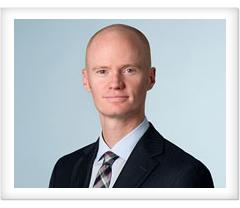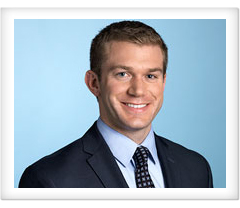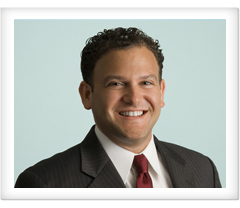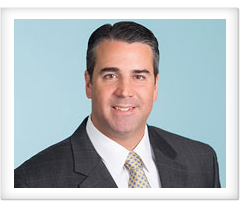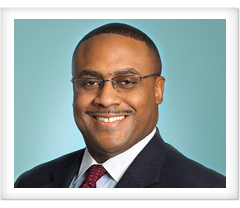|
Recent Trends & Developments in Employment, Labor & Benefits Law
Employment Matters Monthly
May 2015
If you missed the final results of our blog’s riveting 2015 Employment Law Issues Tournament — inspired but not eclipsed, our friends assure us, by the NCAA hoopla — take heart! You’ll find a recap of all the April action, from the Elite Eight showdown to the final results, in this issue of our newsletter. For additional can’t-miss content, see our featured quotes and reading suggestions, and review our full complement of April blog posts, providing news and insights on developments relating to HR and employment law.
You can subscribe to our Employment Matters blog here.
 

Contents
 April 2015 Employment Matters Blog Posts April 2015 Employment Matters Blog Posts
 2015 Employment Law Issues Tournament 2015 Employment Law Issues Tournament
 Media Mentions Media Mentions
 What We're Reading What We're Reading
 Employment Quote(s) of the Week Employment Quote(s) of the Week
 Our Contributors Our Contributors

April 29, 2015
Written by Michael Arnold
Mayor de Blasio recently signed a series of bills that, among other things, require the New York City Human Rights Commission — the agency responsible for enforcing the New York City Human Rights Law — to conduct employment discrimination investigations using the paired testing method. This is the Commission’s version of a sting operation.
Continue Reading …
April 29, 2015
Written by Gauri Punjabi
In what appears to be a sign of things to come, a federal court in New York recently approved the use of social media to notify potential class members who were more likely to be reached that way rather than by more traditional forms of notice, such as regular mail. The order permitting social media use comes on the heels of a similar order by a federal court in California.
Continue Reading …
April 28, 2015
Written by David Katz
The NLRB last week filed its brief at the Second Circuit Court of Appeals in the well-publicized Facebook “Like” firing case, Three D, LLC v. NLRB. Prior to the appeal, we discussed the NLRB’s August 2014 ruling here as part of a broader discussion of the Board’s recent crackdown on employers’ “overbroad” social media policies. The Second Circuit’s forthcoming decision will be one of the first appellate court decisions to weigh in on the NLRB’s expansive view on employee rights under the National Labor Relations Act in the social media context.
Continue Reading …
April 23, 2015
Written by Michael Arnold
This week, in Greathouse v. JHS Security, Inc., the Second Circuit Court of Appeals held that employees may pursue a Fair Labor Standards Act retaliation claim premised upon an oral complaint to their employer – a clear expansion of its earlier interpretation of the law.
Continue Reading …
April 22, 2015
Written by Brent Douglas
The Ninth Circuit Court of Appeals recently sent a case back to a district court to revisit its enforcement of a settlement agreement that prohibited an employee from future employment with the employer and any company the employer later acquired or served. The opinion in Golden v. California Emergency Physicians Medical Group addresses whether California Business & Professions Code section 16600 extends to non-compete agreements only and certainly provides ammunition for future attacks on no re-hire provisions in settlement agreements and other non-traditional restrictive covenants.
Continue Reading …
April 22, 2015
Written by Patricia Moran
On April 16, 2015, the EEOC published proposed regulations setting forth its position on the use of physical examinations under employment-based wellness programs. This comes as welcome guidance to employers who have implemented, or who hope to implement, workplace wellness programs that include biometric tests or physical examinations as part of the process for providing financial rewards to employees.
Continue Reading …
April 21, 2015
Written by Michael Arnold
A Magistrate Judge in the Northern District of California recently handed down an important decision regarding the application of the Fair Credit Reporting Act to one of LinkedIn’s search products. The decision in Sweet v. LinkedIn Corp. comes amidst a fluid legal landscape for employers and consumer reporting agencies trying to remain in compliance with the FCRA and provides another example of a court grappling with how to reconcile new technologies with existing statutes.
Continue Reading …
April 20, 2015
Written by Michael Arnold
The New York City Council passed the Stop Credit Discrimination in Employment Act last Thursday. It amends the New York City Human Rights Law to prohibit most employers from making employment decisions based on an employee or applicant’s consumer credit history. The law will go into effect in the late summer.
Continue Reading …
April 16, 2015
Written by Michael Arnold
First it was the blue and gold dress. Now, the next viral Internet sensation centers on the unlikeliest of events: Cheryl’s birthday. We thought we’d have some fun and pose it as an employment law question. See if you can solve it. No cheating please.
Continue Reading …
April 15, 2015
Written by Dan Long
Last Friday, the Sixth Circuit Court of Appeals sitting en banc held that telecommuting up to four days a week was not a reasonable accommodation under the ADA for a disabled Ford Motor Co. employee. The decision, EEOC v. Ford Motor Co., provided a win for employers (and a setback for the EEOC) by reversing an earlier decision issued by a divided panel of three Sixth Circuit judges, which had held that telecommuting was a reasonable accommodation for this particular employee.
Continue Reading …
April 14, 2015
Written by George Patterson
We have written previously about the expanding scope of social media activities that the National Labor Relations Act protects and the tight limits the NLRB places on an employer’s ability to discipline employees for work-related communications that take place online. As the Board’s latest ruling makes clear, employee social media communications that relate to working conditions or unionization will often be protected even if they are offensive, obscene or attack individual members of management personally. In Pier Sixty, LLC, 362 NLRB 59 (March 31, 2015), the NLRB upheld an administrative law judge’s decision that a catering company in New York City violated sections 8(a)(1) and (3) of the NLRA when it terminated an employee for profanely attacking and insulting a supervisor in a Facebook post two days before a union certification election.
Continue Reading …
April 14, 2015
Written by Michael Arnold
The New York City Human Rights Law specifically says that an employer’s agent can be held liable for discrimination, but its liability provision doesn’t address the circumstances under which that agent may be held liable for the discriminatory actions of the agent’s employee. A New York Federal Court has now addressed this gap in the law.
Continue Reading …
April 9, 2015
Written by Michael Arnold
This week, the Supreme Court disappointed many employers by declining to determine whether the Fair Labor Standards Act does or does not provide employees with a non-waivable substantive right to bring a collective action. The employer in Killion v. KeHE Distributors was hoping the Supreme Court would answer that question in the negative and vacate an earlier Sixth Circuit Court of Appeals decision refusing to enforce a collective action waiver contained in a separation agreement.
Continue Reading …
April 1, 2015
Written by Jessica Catlow and Pam Greene
Section 162(m) of the Internal Revenue Code precludes the deduction by public companies for compensation paid to certain covered employees in excess of $1,000,000 in any taxable year. This limitation on deduction does not apply to performance-based compensation. Such performance-based compensation is deductible so long as the following requirements are met,,,
Continue Reading …
April 1, 2015
Written by David Barmak
The Securities and Exchange Commission instituted cease and desist proceedings against KBR, Inc. for the purpose of entering an agreed Cease and Desist Order which is likely to affect the drafting of all confidentiality agreements entered into between a company and its employees. Indeed, the Order serves as a reminder to employers to carefully review and consider the language used not only in employee confidentiality agreements but also separation agreements, employment agreements, personnel handbooks and other documents which impose confidentiality restrictions on employees.
Continue Reading …
Return to top

April 1, 2015
Written by Michael Arnold
We’re still at it over here. We can’t stop. We have tons of clever basketball-employment law-related puns left in our arsenal and we expect to deploy them. This is what our readers want and this is what we’ll give our readers until the bitter end. Up next: The Eight Elite. The surviving eight employment law issues duked it out over the past weekend for the opportunity to move on to the Final Four. These games were incredible and resulted in two huge upsets. We even scored an unheard of 71.8 Nielsen rating among the employment lawyer and HR professionals demographic, which was odd because the networks weren’t broadcasting the games.
Also odd: our reader comments. First up we had Emily, Vice President and Employment Counsel at Gruber, an up and coming ride-sharing service that only employs(?)/engages(?) drivers that have an uncanny resemblance to Die Hard’s infamous villain, Hans Gruber. Emily e-mailed us wondering if scientists had already named the planet we must have been on to think that No. 2 Retaliation Claims was capable of defeating the heavily-favored and No. 1 ranked Overtime. Then we heard from Blake, a Human Capital Manager at Superfluous.com, a legal coaching firm that focuses on helping attorneys with Chronic Verbosity Syndrome or CVS (which we hear will make an appearance in DSM-VI). In just a 23 word e-mail, she questioned how the Wage & Hour Collective Actions could possibly win while the Wage & Hour Class Actions lost, and then she signed off: “You’ll be hearing from my lawyer.” Yikes. We must say, we’ve really enjoyed all of your feedback throughout the tournament. Please keep it coming.
More coverage on the Elite Eight below.
Continue Reading …
April 3, 2015
Written by Michael Arnold
“There’s a tradition in tournament play — not to talk about the next step until you’ve climbed the one in front of you. I’m sure writing a tournament championship blog entry is beyond your wildest dreams, so let’s just keep it right there.” That’s a direct, completely unaltered quote from Norman Dale, Esq. in Barristers, a movie about a small town law firm that unexpectedly wins the biggest case of the year. Alternatively, that’s a slightly-altered quote from Coach Norman Dale in Hoosiers, a movie about a small-town high school basketball team that defies the odds to win the 1952 Indiana State High School Basketball Championship. And although we’re super excited that the finish line is near, we are going to heed Counselor Dale’s advice and focus squarely on this Final Four post.
The Final Four was spectacular — Social Media Policies battling it out against the Retaliation Claims; Non-Competition Agreements taking on Wage & Hour Collective Actions — each is an important employment law issue in its own right, but only one can call itself the most important of 2015. These games were everything we hoped they would be and more. Our readers, of course, vehemently disagreed. Here now, as we inch closer to the proverbial cutting down of the nets, are two relevant reader comments.
Melvin, an Employee Relations Associate at CrossKnit, the premier high-intensity multi-stitching technique workout club in the US, wrote in to say: “What a sham. Social Media Policies ran the weave flawlessly and threaded the needle consistently throughout the game and still lost?!? Impossible. I’m never reading this blog again.” And then there was Allan, a Training and Development Manager at The Walking Thread, a local company offering walking tours of the city’s finest yarn stores. Allan emailed us to simply say: “Unsubscribe.” No single word hurts a blogger more than that. Please reconsider Allan. Please.
Okay, onto the Final Four games.
Continue Reading …
April 7, 2015
Written by Michael Arnold
Sixty-four employment law issues have become just two after an exciting Final Four. Last night, while Wisconsin and Duke played each other in the NCAA championship, the Wage and Hour Collective Actions and the Retaliation Claims faced off in the ELIT championship. Which one were you watching? (Don’t answer that.) Hosted this year in the Fifth Circuit down in the Big Easy, home to some of the most memorable championship games in history (North Carolina over both Georgetown (1982, MJ’s shot) and Michigan (1993, CWebb’s TO), Indiana over Syracuse (1987, Smart’s Baseline Jumper), Syracuse over Kansas (2003, Warrick’s Block), and of course Race Discrimination over Exemption Misclassification (2006, Pretext’s half-court game-winning buzzer beater)), this year’s ELIT championship game was just like the tournament generally – everything we hoped it would be and more.
And believe it or not, we finally received positive feedback about our tournament coverage. Linda, the Head of HR at SoulReCycle, which provides customers with the privilege of paying $30 a class to furiously return soda cans to local supermarket recycling machines while an environmental education instructor blasts Top-40 hits and screams at you for seemingly no reason, left us a voicemail stating: “I don’t care what anyone says, and I don’t care that I have no idea what you are talking about; this is so great, I’m just so proud of you and I can’t wait to tell my friends all about it tonight at our canasta game.”
Okay, so that voicemail may have been from one unnamed contributor’s mother-in-law – but honestly, we are proud of ourselves too. We had a lot of fun running this tournament over the law few weeks and we hope that our (real) readers did too. Seriously, you haven’t lived until you’ve watched two grown employment lawyers intensely debate who would win a game between the Social Media Policies and a Hostile Work Environment if those two issues were actually real basketball teams playing in an actual real basketball game. And the debate was no less healthy when it came to our championship matchup between Wage & Hour Collective Actions and Retaliation Claims. So, without further ado, here is that recap (followed by an important message from our sponsors and an unforgettable rendition of One Shining Moment Lawsuit).
Continue Reading …
Return to top

April 24, 2015
Jen Rubin was quoted in an article in the Daily Transcript entitled New Undocumented Driver's License Law Tests Employers. In the article, Jen discusses a new California law prohibiting discrimination against those possessing the AB 60 driver’s licenses that California issues to undocumented persons.
April 10, 2015
Don Schroeder was quoted in an SHRM article entitled Fight for $15’ Protests Expected to Be Biggest Ever in which he analyzes the development of the “Fight for $15” movement. The article examines contrasting perspectives on protestors’ efforts to increase the minimum wage to $15.
Return to top

“The Work-Life Imbalance Report,”presented by Workfront (April 2015)
Meshna v. Scrivanos, SJC-11618 (Mass. Apr. 10, 2015) (Gants, J.) (Employers may implement no-tipping policy without violating wage act.)
1 In 5 Employers Has Unknowingly Asked An Illegal Interview Question, CareerBuilder Survey Finds, CareerBuilder Survey (Apr. 9, 2015)
Pier Sixty, LLC, Case 02-CA-068612 (NLRB Mar. 31, 2015) (affirming ALJ decision that employer violated NLRA when it terminated employee who posted vulgar Facebook message about his supervisor)
Return to top

“[T]he EEOC appears to seek a more expansive interpretation of sex under Title VII that would include transgender persons as a protected class. There is no Sixth Circuit or Supreme
Court authority to support the EEOC’s position that transgender status is a protected class under Title VII. … Even though transgender/transsexual status is currently not a protected class under Title VII, Title VII nevertheless ‘protects transsexual persons from discrimination for failing to act in accordance and/or identify with their perceived sex or gender.’”
District Judge Sean F. Cox in EEOC v. R.G. & G.R. Harris Funeral Homes, Inc., No. 14-13710 (E.D. Mich. Apr. 21, 2015) (denying the funeral home’s motion to dismiss the complaint) (citations omitted).
“[S]haring information is precisely why the subjects here or anyone else on LinkedIn provides their employment histories to LinkedIn.”
Magistrate Judge Paul Grewal in Sweet v. LinkedIn Corp., 14 Civ. 04531(PSG) (N.D. Cal. Apr. 14, 2015) (one of the many reasons, the judge said, that LinkedIn’s “Reference Searches” do not constitute “consumer reports” under the Fair Credit Reporting Act).
“The Americans with Disabilities Act (ADA) requires employers to reasonably accommodate their disabled employees; it does not endow all disabled persons with a job — or job schedule — of their choosing…. [A] Ford Motor Company employee with irritable bowel syndrome, sought a job schedule of her choosing: to work from home on an as-needed basis, up to four days per week. Ford denied her request, deeming regular and predictable on-site attendance essential to [her] highly interactive job. Ford’s papers and practices — and [her] three past telecommuting failures—backed up its business judgment.”
Judge McKeague in EEOC v. Ford Motor Co., No. 12-2484 (6th Cir. Apr. 10 2015) – an en banc ruling that reversed a previous split decision from the court and affirmed the district court’s granting of Ford’s summary judgment on a telecommuting failure to accommodate claim.
“A lot of progress has been made around the issue of workplace harassment, but we know it remains a persistent problem. Complaints of harassment span all industries, include many of our most vulnerable workers, and are included in 30% of the charges that we receive.... Through creation of this Select Task Force, I hope we will reach more workers and more in the employer community so we can understand the challenges they face and promote the practices we’ve seen work. I really look forward to the results.”
Jenny R. Yang, Chair of the EEOC, in announcing the membership of the EEOC’s Select Task Force on the Study of Harassment in the Workplace (EEOC Press Release, Mar. 30, 2015)
Return to top

Learn more about Employment Matters blog and its contributors here.
|






